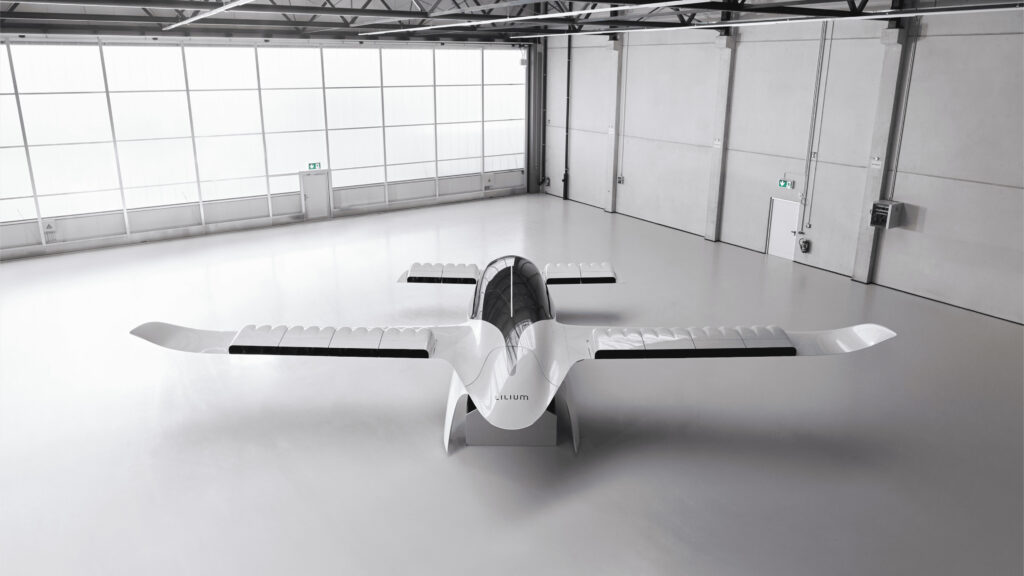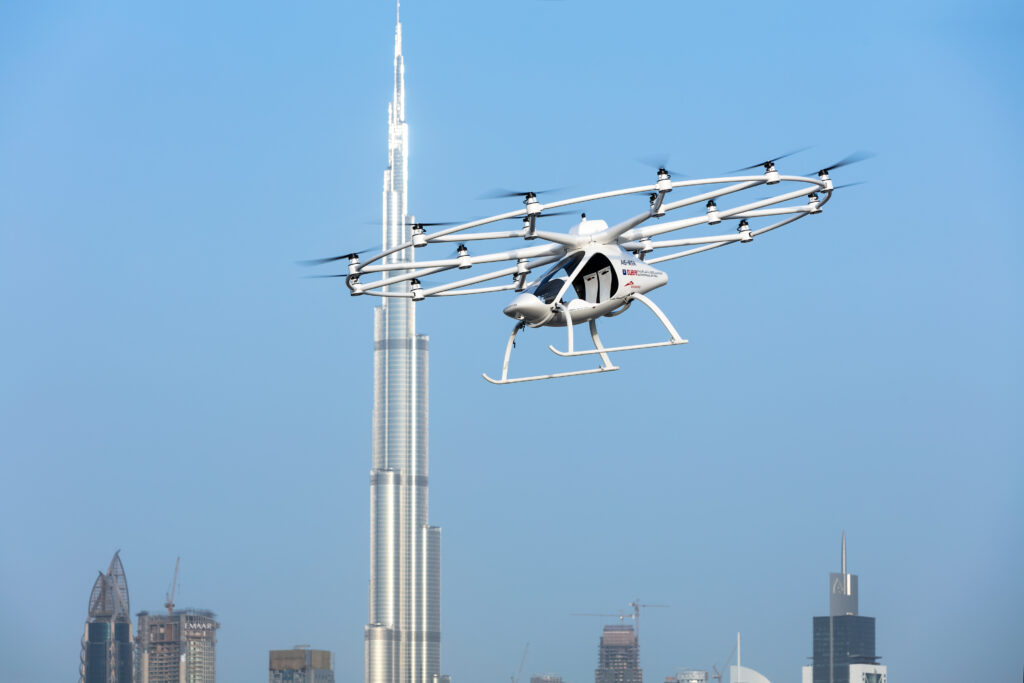The Future of Air Mobility: How eVTOLs Are Reshaping Aviation
Urban air mobility is no longer a vision, it’s unfolding now in the GCC.
A New Era in Aviation
The aviation industry is undergoing a transformative shift with the rapid advancement of eVTOL (Electric Vertical Take-Off and Landing) aircraft. These innovative vehicles, once viewed as a futuristic concept, are now becoming a reality. Designed for short-haul urban transport, eVTOLs offer a new solution to mobility challenges in congested cities and hard-to-reach areas, representing the next frontier in sustainable and efficient air travel.
What Are eVTOLs and Why They Matter
eVTOLs are aircraft that use electric power to hover, take off, and land vertically, similar to helicopters but with drastically improved energy efficiency, lower noise levels, and reduced emissions. Their compact size and quiet operation make them ideal for urban environments. By leveraging advances in electric propulsion, autonomous technology, and lightweight materials, eVTOLs are poised to revolutionize personal and public transport alike.
Key benefits of eVTOLs include:
- Environmentally friendly with zero direct emissions
- Lower operational and maintenance costs
- Reduced noise pollution compared to helicopters
- Ability to operate in urban areas with minimal infrastructure
These advantages are positioning eVTOLs as a central component of future urban air mobility (UAM) ecosystems.

Current Landscape: Key Players and Global Momentum
Globally, the eVTOL sector continues to attract substantial investment and achieve major regulatory milestones. Companies like Joby Aviation, Lilium, Archer Aviation, Volocopter, and EHang are actively shaping this emerging market, backed by strategic collaborations with airlines, regulators, and city authorities.
- Joby Aviation has progressed to Stage 4 of the FAA certification process, with five aircraft currently undergoing flight testing. In early 2025, Joby announced that the first batch of aircraft destined for Dubai will be delivered later this year, with commercial operations expected to begin by early 2026.
- Lilium, the German-based company, is preparing for regional service launch in Europe and the Middle East, with its Lilium Jet achieving key production milestones and strong pre-order interest.
- Volocopter completed operational test flights of its VoloCity aircraft throughout 2024 across Paris and in preparation for permanent deployment. In February 2025, it signed an agreement with Jet Systems Helicoptères to begin commercial service once EASA certification is finalized.
GCC at the Forefront: UAE and Saudi Arabia Leading the Way

The United Arab Emirates has emerged as one of the most proactive countries in adopting eVTOL technology. Dubai’s Roads and Transport Authority (RTA) has partnered with Joby Aviation to introduce aerial taxi services by 2026, with plans to launch vertiports across key locations including Downtown Dubai, Palm Jumeirah, and Dubai International Airport. Public demonstrations and test flights, like the one conducted by Volocopter, underscore the country’s serious commitment to turning vision into reality. The General Civil Aviation Authority (GCAA) is also working to finalize a regulatory framework to support safe and scalable eVTOL operations across the UAE.
Saudi Arabia is investing aggressively in future mobility as part of its Vision 2030 strategy. The crown jewel of this ambition is NEOM, a $500 billion smart city project that integrates next-generation infrastructure, including urban air mobility. NEOM’s mobility plan includes dedicated eVTOL corridors and vertiports, aiming to make aerial taxis a viable mode of daily transport. Backed by the Public Investment Fund (PIF), the Kingdom has already allocated hundreds of millions of dollars toward new mobility ventures and partnerships with international eVTOL manufacturers and infrastructure developers, positioning Saudi Arabia as a serious player in the global air mobility race.
Opportunities and Challenges
While the future of eVTOLs is full of promise, there are several real-world challenges that must be addressed before full-scale deployment becomes a reality. On the flip side, these same areas present tremendous opportunities for governments, investors, and aviation innovators to shape the future of air mobility.
Challenges:
- Airspace integration with existing ATC systems
- Battery limitations affecting range and charging time
- Regulatory frameworks still under development
- Infrastructure requirements like vertiports and charging hubs
- Public acceptance and trust in new flight technologies
Opportunities:
- First-mover advantage in urban air mobility markets
- New revenue streams for aviation service providers
- Reduced congestion and emissions in cities
- Strategic investments in mobility-as-a-service (MaaS)
- Collaboration between governments and tech innovators
The Role of 360 Consultants
At 360 Consultants, we stay ahead of the curve by monitoring trends that shape the future of mobility. We support clients, whether investors, operators, or government bodies, in navigating the complexities of this new era. Our team provides advisory services in aircraft acquisition, regulatory planning, market entry strategies, and urban air mobility infrastructure.
What sets us apart is our deep-rooted expertise across the aviation spectrum, combined with strategic foresight and access to key stakeholders in the GCC and beyond. We understand the regulatory, technical, and operational nuances of integrating eVTOLs and next-gen air mobility systems. Whether you’re a government exploring public infrastructure, a developer designing future cities, or a private investor seeking high-impact opportunities, 360 Consultants is equipped to guide, connect, and deliver results.
We don’t just follow the future, we help shape it.


